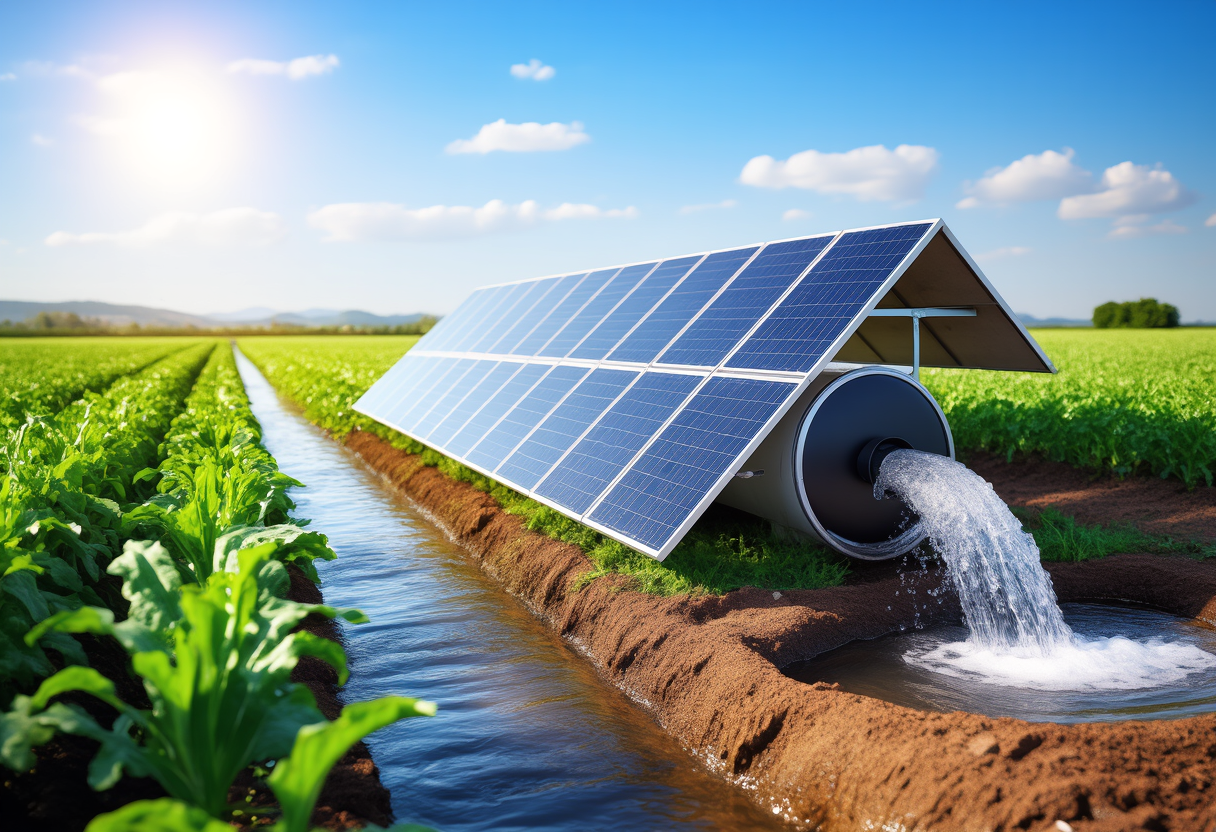Harnessing the Energy of the Sun: The Role of Solar-Powered Water Pumps
Solar-Powered Water Pumps are changing the way we manage water resources in agriculture. This article examines how these innovative systems harness solar energy to provide efficient irrigation solutions, ultimately promoting sustainability and addressing global water challenges.
The Importance of Solar Energy in Water Management
The importance of harnessing solar energy cannot be understated, particularly when it comes to water management in agriculture. Solar-Powered Water Pumps exemplify how this renewable resource can be utilized to address global challenges related to water scarcity and energy consumption. By converting sunlight into electricity, these systems efficiently transport water for irrigation and other agricultural needs. As reliance on finite fossil fuels increases pressure on our environment, transitioning to Solar-Powered Water Pumps represents a pivotal step towards sustainable farming.
How Solar-Powered Water Pumps Operate
Solar-Powered Water Pumps operate using photovoltaic panels that convert sunlight into electrical energy, which is then used to power pumps that move water. This process is straightforward yet highly effective, allowing farmers to irrigate their fields without the need for external energy sources. The flexibility offered by these systems is paramount; they can operate autonomously, providing water even in remote locations where traditional infrastructure may be lacking. Additionally, advancements in battery storage technology improve the efficiency and reliability of these pumps, enabling uninterrupted water supply even during low sunlight periods.
The Economic Dynamics of Solar-Powered Water Pumps
The economic dynamics surrounding Solar-Powered Water Pumps favor their adoption in a range of agricultural settings. Farmers can experience significant initial investments offset by long-term savings on fuel and maintenance costs. The lowering prices of solar technology also contribute to increased accessibility, making solar pumps a viable option for smallholder farmers. Moreover, federal and state subsidies aimed at promoting renewable energy can provide additional financial relief, making it easier for farmers to transition to Solar-Powered Water Pumps and take advantage of their manifold benefits.
Addressing Water Scarcity with Solar-Powered Water Pumps
Water scarcity is an urgent global issue that impacts food security and agricultural production. Solar-Powered Water Pumps can play a vital role in addressing this challenge, enabling farmers to optimize their water usage and irrigation practices effectively. By allowing for precision watering, farmers can reduce water waste while ensuring crops receive adequate moisture. This efficiency is especially crucial in arid regions where water resources are limited, highlighting the importance of Solar-Powered Water Pumps in facilitating sustainable agricultural practices.
Solar-Powered Water Pumps and Climate Resilience
Adopting Solar-Powered Water Pumps can enhance climate resilience among farming communities. As climate change poses increasing threats to traditional farming practices, these systems provide an environmentally friendly alternative that is less susceptible to the fluctuations of weather. Consistent access to water enables farmers to cultivate diverse crops and implement improved agronomic practices, thus fostering resilience in the face of changing climatic conditions. The shift towards Solar-Powered Water Pumps, therefore, contributes not only to sustainable agriculture but also to community stability.
Conclusion: A Sustainable Future with Solar-Powered Water Pumps
In conclusion, Solar-Powered Water Pumps are pivotal to developing a sustainable agricultural future. By leveraging solar energy, these systems enable efficient water management while mitigating environmental impact. Addressing economic, logistical, and educational challenges surrounding their integration will ultimately pave the way for a broader adoption of Solar-Powered Water Pumps. As we seek effective solutions to global water issues, embracing innovative technologies like these will be essential for fostering a resilient and sustainable agricultural landscape.
